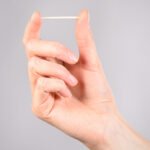Now Reading: Folic Acid And Fertility – What You Need to Know
-
01
Folic Acid And Fertility – What You Need to Know
Folic Acid And Fertility – What You Need to Know

Folic acid is crucial for fertility. Many people don’t know its full benefits.
Understanding folic acid’s role can enhance your fertility journey. This vitamin B9 form is essential for reproductive health. It supports DNA synthesis and cell growth. Women planning a pregnancy should consider it seriously. Folic acid helps prevent birth defects and boosts fertility in both men and women.
It improves egg quality and sperm count. Many doctors recommend taking folic acid before conception. It prepares the body for a healthy pregnancy. Even if you’re not planning soon, it’s wise to be informed. Learn how this simple vitamin can impact your reproductive health. Discover the connection between folic acid and fertility. Stay informed and make the best choices for your future family.
Folic Acid Basics
Folic acid is often mentioned in conversations about pregnancy and fertility. But what exactly is it? Understanding the basics can help you make informed decisions about your reproductive health. This essential vitamin plays a vital role in your body’s functions, especially when you’re planning to start a family. Let’s break down the essentials of folic acid and see how it influences fertility.
What Is Folic Acid?
Folic acid is a type of B vitamin known as B9. It’s found in various foods like leafy greens, citrus fruits, and beans. You might also encounter it as a supplement in your local pharmacy. Your body needs folic acid to create new cells. Imagine it as a building block that helps you grow and repair your body. Can you remember the last time you felt vibrant and healthy? Folic acid could have been silently supporting you!
Role In Reproductive Health
Folic acid is crucial for reproductive health. It helps prevent birth defects in the baby’s brain and spine. When you’re trying to conceive, folic acid supports the development of your baby’s neural tube. Not only does it aid the baby, but it also enhances your fertility. Have you ever wondered about ways to boost your chances of conception? Adding folic acid to your diet could be a simple yet effective step.
Consider starting your day with a breakfast rich in folic acid, like a spinach smoothie or a bowl of fortified cereal. These small changes can add up over time. If you’re unsure about the right amount, consult your doctor for personalized advice. How could this vitamin make a difference in your journey to parenthood?
Folic acid is more than just a vitamin—it’s an ally in your reproductive health. By understanding its basics, you empower yourself with knowledge. Why not explore what folic acid can do for you today?
Importance For Women
Folic acid plays a crucial role in women’s health, especially when it comes to fertility and pregnancy. Many women don’t realize how this simple vitamin can impact their journey to motherhood. If you’re planning to become pregnant or are already expecting, knowing the importance of folic acid can make a significant difference.
Benefits During Pregnancy
Folic acid is essential during pregnancy for several reasons. It helps form the neural tube in the developing fetus, which becomes the baby’s brain and spinal cord. Without enough folic acid, there’s a risk of neural tube defects, which can lead to serious health issues.
Consider the story of a friend who diligently took folic acid supplements during her pregnancy. Her doctor advised her that starting early could significantly reduce the risk of complications. This proactive approach gave her peace of mind and contributed to a healthy pregnancy.
Have you thought about how such a small vitamin could have such a profound effect on your baby’s development? It’s a simple step with lasting benefits.
Impact On Egg Quality
Beyond pregnancy, folic acid also impacts fertility by improving egg quality. Healthy eggs are crucial for conception, and folic acid aids in this process. It’s like giving your eggs the best possible chance to thrive.
Imagine setting the stage for a successful pregnancy even before it begins. By ensuring you have enough folic acid, you’re supporting your body’s ability to produce viable eggs. This can be a game-changer for women who are trying to conceive.
Have you considered the role of your diet in egg health? Incorporating folic acid-rich foods can help boost your fertility naturally. Foods like leafy greens, beans, and citrus fruits are excellent sources.
Taking control of your health by focusing on essential nutrients like folic acid can empower you on your fertility journey. What steps are you taking today to ensure a healthy tomorrow?
Importance For Men
Folic acid often gets attention for its role in women’s fertility. Yet, its importance for men shouldn’t be overlooked. Men need folic acid too, especially for fertility. It plays a key role in reproductive health. Understanding its benefits can make a difference.
Influence On Sperm Health
Sperm health is vital for male fertility. Folic acid contributes to better sperm quality. It helps in sperm production and maintenance. Men with higher folic acid levels may have healthier sperm. This can lead to improved chances of conception.
Low folic acid can impact sperm count. It may also affect sperm mobility. These factors are crucial for successful fertilization. Ensuring adequate folic acid intake supports overall sperm health.
Enhancing Fertility
Folic acid enhances male fertility in several ways. It plays a role in DNA synthesis and repair. This is important for healthy sperm development. A healthy diet including folic acid can boost fertility.
Men aiming to improve fertility should consider their folic acid levels. Consuming foods rich in folic acid can help. This includes leafy greens, beans, and fortified cereals. Supplements may also be beneficial.
Overall, folic acid is a key nutrient for male fertility. Ensuring sufficient intake can support reproductive health. Men should be aware of its importance for optimal fertility outcomes.
Recommended Intake
Folic acid supports fertility by promoting healthy cell growth. Experts suggest a daily intake of 400 to 800 micrograms. This vitamin is vital for women trying to conceive, enhancing reproductive health.
Understanding the recommended intake of folic acid can be a game-changer for anyone looking to boost their fertility. The right dosage can support your reproductive health, but how much is enough? Too little might not provide the benefits you need, while too much could lead to unintended side effects. Let’s break down the essentials so you can make informed decisions.
Daily Dosage Guidelines
The typical recommendation for adults is 400 micrograms (mcg) of folic acid per day. If you’re planning to conceive, the intake should increase to 600 mcg. Pregnant women need this higher dose to support the baby’s development.
These numbers might seem small, but they play a crucial role in reducing risks such as neural tube defects. You might wonder if you can get enough from your diet alone. That’s a possibility, but supplements often ensure you meet the daily requirement without fail.
A healthcare professional can guide you on personalized dosage recommendations. This is especially important if you have specific health conditions that affect nutrient absorption.
Sources Of Folic Acid
Folic acid is available in both food and supplements. Natural sources include leafy greens like spinach and kale. You can also find it in legumes, citrus fruits, and nuts.
Many cereals and bread are fortified with folic acid. Check the labels next time you’re shopping. You might be getting more folic acid than you think from your morning bowl of cereal.
Supplements can be an easy way to ensure you meet your daily needs. But always consider quality and consult a healthcare provider for advice tailored to your situation.
Are you relying solely on supplements, or are you incorporating these nutrient-rich foods into your meals? Balancing both can be the key to optimizing your fertility journey.
Folic Acid Deficiency
Folic acid plays a vital role in the body. It helps create DNA and RNA, essential for cell division. A deficiency can lead to serious health issues. Understanding the symptoms and risks of folic acid deficiency can help in maintaining fertility.
Symptoms And Risks
Folic acid deficiency can cause fatigue. You might feel weak or have difficulty concentrating. You may also experience irritability. Some might notice weight loss or poor growth. Severe deficiency can lead to anemia. This affects oxygen transport in the body.
Pregnant women with low folic acid levels face serious risks. The risk of neural tube defects in babies increases. Miscarriage risk is higher with insufficient folic acid. These risks make folic acid crucial during pregnancy.
Effects On Fertility
Folic acid deficiency affects fertility. It can hinder egg development. Healthy eggs are vital for conception. Low levels may disrupt hormone balance. Hormone imbalance affects reproductive health.
Men are also affected by folic acid deficiency. It can reduce sperm count. This can lead to infertility issues. Ensuring adequate folic acid intake supports fertility in both genders.
Supplementation Options
Folic acid plays a crucial role in fertility and pregnancy health. It supports cell growth and helps prevent birth defects. Considering supplementation can enhance fertility chances for those planning to conceive.
When you’re trying to conceive, folic acid can be your best friend. It plays a crucial role in supporting fertility and ensuring a healthy pregnancy. Understanding your supplementation options is essential to make the best choice for your body and future baby. Let’s dive into how you can choose the right supplement and explore the differences between natural and synthetic forms.
Choosing The Right Supplement
Selecting the right folic acid supplement isn’t just about picking up a bottle at the store. You need to consider factors like dosage, brand reputation, and your specific health needs. It’s essential to talk to your healthcare provider for personalized advice, especially if you’re already taking other medications.
Many women swear by prenatal vitamins that include folic acid, as they offer a convenient way to get multiple nutrients in one pill. However, standalone folic acid supplements are also available if you prefer a tailored approach.
Have you ever thought about how the quality of your supplements could affect their effectiveness? High-quality brands often undergo rigorous testing to ensure purity and potency. These are worth considering even if they come with a slightly higher price tag.
Natural Vs. Synthetic Forms
When choosing folic acid supplements, you’ll encounter both natural and synthetic forms. Natural folate is found in foods like leafy greens and citrus fruits, while synthetic folic acid is commonly used in supplements and fortified foods. Both forms have their benefits and limitations.
Natural folate is considered more bioavailable, meaning your body might absorb it more efficiently. But you would need to consume a varied diet rich in folate-containing foods to meet your needs, which isn’t always practical for everyone.
Synthetic folic acid, on the other hand, is more stable and easier to measure in supplements. This makes it a popular choice for ensuring you get the correct dosage. However, some people may have difficulty converting folic acid into its active form due to genetic variations.
Have you ever wondered if your body is absorbing folic acid efficiently? You might consider a supplement that contains methylfolate, the active form of folate, which bypasses the conversion process and is readily usable by your body.
By understanding your options and consulting with a healthcare professional, you can make an informed choice about folic acid supplementation that supports your fertility journey.
Potential Side Effects
Folic acid plays a crucial role in fertility. Yet, potential side effects can arise from its consumption. Understanding these effects is essential for those seeking to boost their fertility. While folic acid is vital, it is important to consume it wisely.
Understanding Overconsumption
Excess folic acid can lead to health issues. Overconsumption might mask vitamin B12 deficiency. This can cause nerve damage over time. Symptoms include numbness and tingling in fingers or toes. Some people may experience stomach problems. Nausea and diarrhea can occur with high doses. Monitoring intake helps prevent these issues.
Managing Adverse Reactions
Not everyone experiences side effects. Some might feel allergic reactions. Symptoms include rash or itching. Breathing difficulties can be serious signs. Consult a doctor if these occur. Adjusting dosage might reduce side effects. Regular check-ups ensure safe consumption. Awareness is key to managing reactions effectively.
Future Research
Exploring the link between folic acid and fertility is crucial for future research. Folic acid plays a key role in reproductive health. Understanding its impact can help improve fertility treatment outcomes.
Future research on folic acid and fertility holds promise for couples seeking to enhance their chances of conception. As science evolves, new studies and innovations are emerging, offering hope and practical insights. Understanding these advancements can empower you to make informed decisions about your fertility journey.
Emerging Studies
Recent studies are shedding light on the role of folic acid beyond its well-known benefits for pregnancy. Researchers are examining its impact on improving egg quality and sperm health. Imagine the difference it could make if folic acid plays a crucial role in increasing fertility rates.
Scientists are also exploring how folic acid interacts with other nutrients in the body. This could lead to more personalized dietary recommendations for those trying to conceive. Wouldn’t it be great to have a tailored plan that optimizes your reproductive health?
Innovations In Fertility Treatments
Innovations in fertility treatments are integrating folic acid in novel ways. Some clinics are now including folic acid supplements as a standard part of fertility protocols. This shift underscores the growing recognition of its potential benefits.
Moreover, there is ongoing research into developing enhanced folic acid supplements. These aim to maximize absorption and efficacy, potentially leading to better outcomes for those undergoing fertility treatments. Are you curious about how these advancements could change the landscape of fertility care?
As you consider the future of your fertility journey, staying informed about these research developments can offer valuable guidance. By understanding emerging studies and innovations, you can take proactive steps to support your reproductive health.
Frequently Asked Questions
Does Folic Acid Make You More Fertile?
Folic acid supports fertility by aiding cell production and DNA synthesis. It enhances reproductive health and reduces birth defects. While it doesn’t directly increase fertility, adequate folic acid intake is essential for preconception health. Consult your healthcare provider for personalized advice on folic acid supplementation.
What Food To Avoid When Taking Folic Acid?
Avoid alcohol and foods high in processed sugars while taking folic acid. They can interfere with its absorption. Opt for whole grains, fruits, and vegetables to enhance benefits.
What Does Folic Acid Do To A Woman’s Body?
Folic acid supports healthy cell growth and development. It helps prevent neural tube defects during pregnancy. This vitamin boosts red blood cell production, reducing anemia risks. It also enhances DNA synthesis, vital for overall health. Women should maintain adequate folic acid intake for optimal wellness.
What Happens If You Take Folic Acid Before Getting Pregnant?
Taking folic acid before pregnancy reduces neural tube defects in babies. It also supports healthy fetal development. Experts recommend 400-800 micrograms daily for optimal benefits.
Conclusion
Folic acid plays a vital role in fertility health. It supports healthy cell growth. This is crucial for conception and pregnancy. Including folic acid in your diet can aid fertility. Foods like leafy greens and fortified cereals are good sources.
Supplements are also an option. Remember to consult a healthcare professional before starting any supplement. Consistent intake boosts your chances of a healthy pregnancy. So, make sure your folic acid levels are adequate. Prioritize your fertility health today.






















